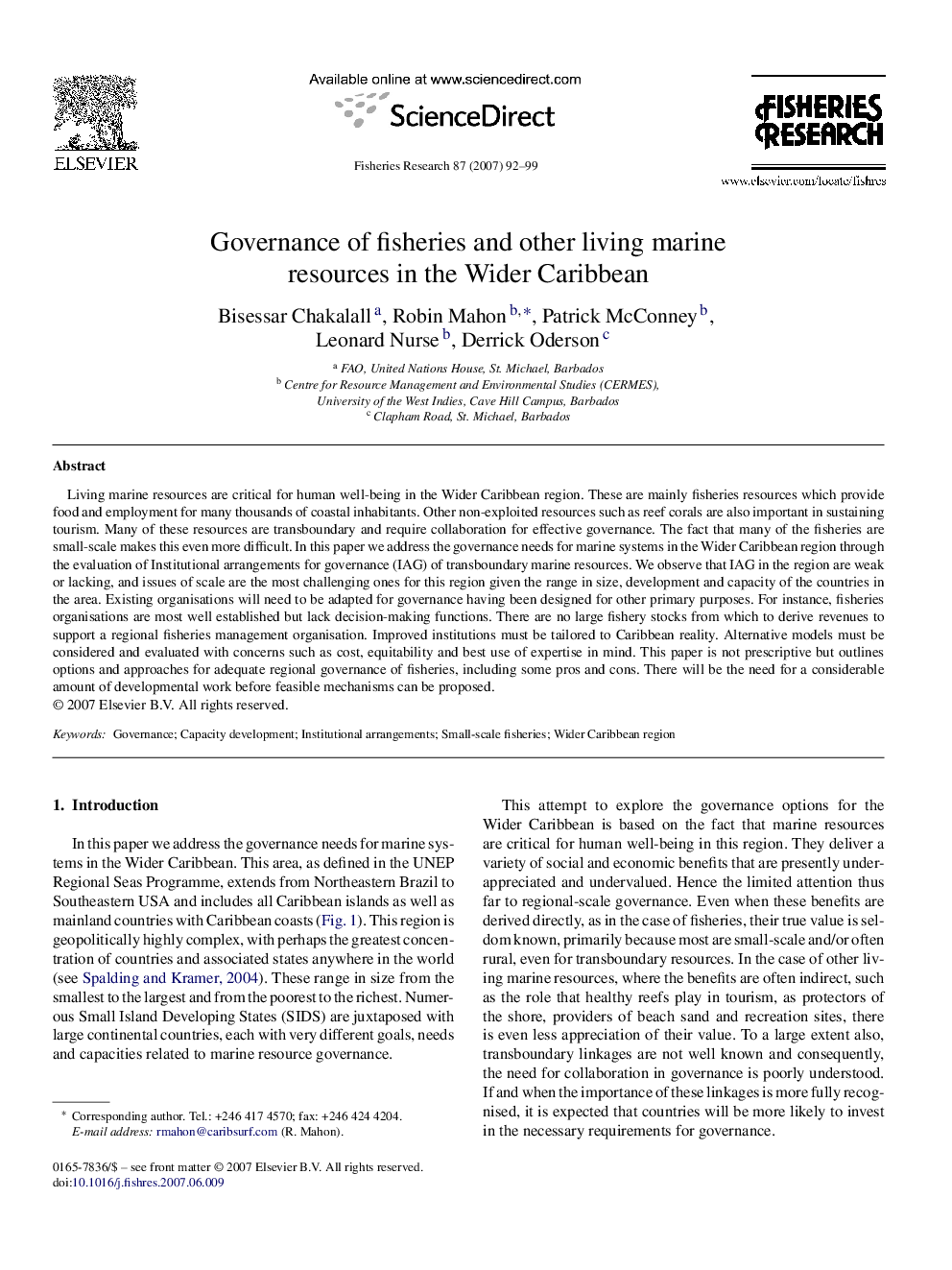| Article ID | Journal | Published Year | Pages | File Type |
|---|---|---|---|---|
| 4544602 | Fisheries Research | 2007 | 8 Pages |
Living marine resources are critical for human well-being in the Wider Caribbean region. These are mainly fisheries resources which provide food and employment for many thousands of coastal inhabitants. Other non-exploited resources such as reef corals are also important in sustaining tourism. Many of these resources are transboundary and require collaboration for effective governance. The fact that many of the fisheries are small-scale makes this even more difficult. In this paper we address the governance needs for marine systems in the Wider Caribbean region through the evaluation of Institutional arrangements for governance (IAG) of transboundary marine resources. We observe that IAG in the region are weak or lacking, and issues of scale are the most challenging ones for this region given the range in size, development and capacity of the countries in the area. Existing organisations will need to be adapted for governance having been designed for other primary purposes. For instance, fisheries organisations are most well established but lack decision-making functions. There are no large fishery stocks from which to derive revenues to support a regional fisheries management organisation. Improved institutions must be tailored to Caribbean reality. Alternative models must be considered and evaluated with concerns such as cost, equitability and best use of expertise in mind. This paper is not prescriptive but outlines options and approaches for adequate regional governance of fisheries, including some pros and cons. There will be the need for a considerable amount of developmental work before feasible mechanisms can be proposed.
